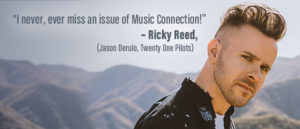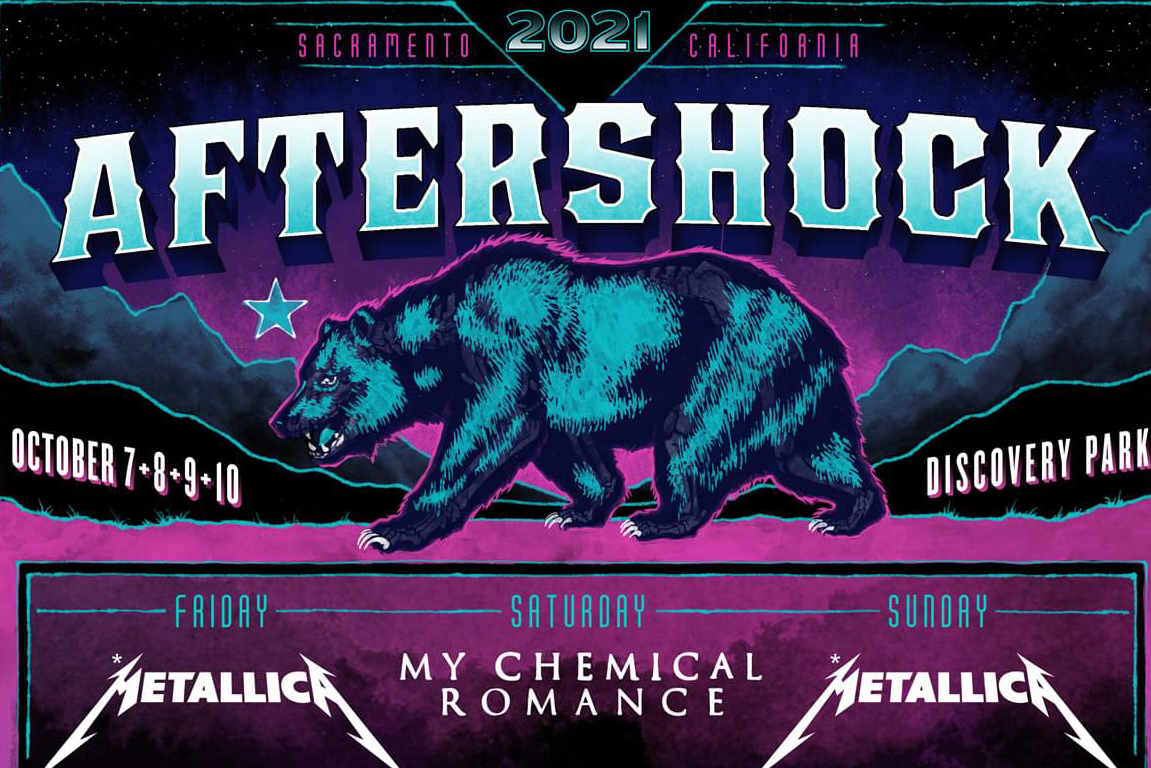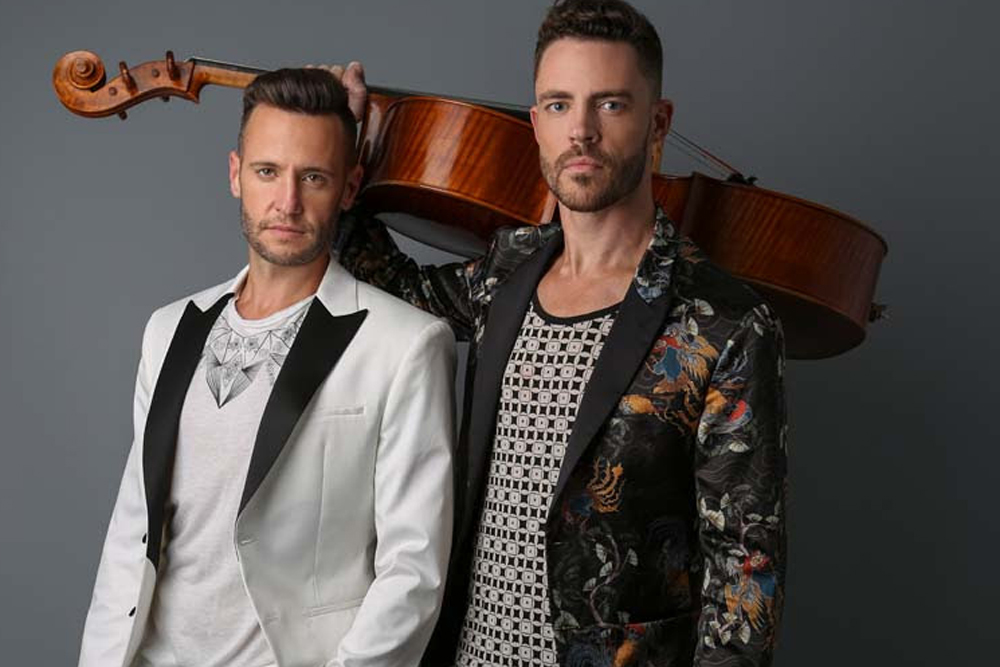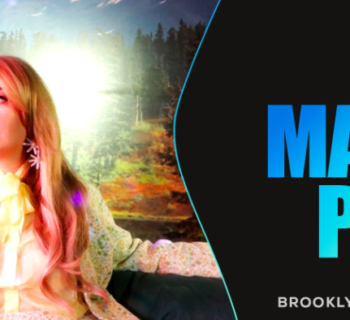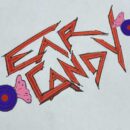With her third full-length studio release, That’s How Rumors Get Started, Margo Price ups the ante with a slate of killer songs, a brilliantly intuitive band, and the brutal honesty that underscores her artistry. This candor has been the touchstone of a body of work which has previously revealed that it requires a mastery of oral sex to be booked on the right shows, shared the saga of her family losing their farm, testified to being jailed for drunk driving, and recounted the tragedy of her two-week old, first-born son’s death.
She was in her early thirties when her solo debut Midwest Farmer’s Daughter blew audiences away with its alchemy of vintage country, roots rock, R&B and a potent injection of a take-no-prisoners attitude. All American Made sustained and expanded on these themes. Now, That’s How Rumors Get Started, written and recorded during her most recent pregnancy, arrives full-blown, fully realized, and all Margo Price.
MC caught up with Price for this exclusive interview as she was on a rare trip out of the house, grocery shopping with her husband and frequent co-writer, Jeremy Ivey.
Music Connection: Even in these strange times, you seem to be doing a lot of work. You recently released a live album recorded in Nashville, Perfectly Imperfect at the Ryman, and of course the reason for this conversation, your third full-length solo studio album, That’s How Rumors Get Started.
Margo Price: I’m trying to be as productive as possible, and I am glad to get the record out. It feels like it’s been an eternity of waiting. One of the biggest things to come out of a bad situation is that people seem to be listening with more intention these days. In the day-to-day world it’s hard to slow down. I’m hoping that my audience will be listening fully.
MC: You tracked much of the record in Los Angeles at the fabled EastWest Studios, in Studio 3 to be exact, a room where incredible records were made with The Mamas and the Papas, Dolly Parton and The Beach Boys.
Price: I was so excited to get out there and experience that space. It’s such a historic building and a lot of artists that I admire recorded there. It’s cool to be in the room where Pet Sounds by The Beach Boys was made.
MC: In listening to your voice on the new collection, and from further listening to your Runaway Horses radio show where you play influential music, it’s clear that you possess a deep knowledge of classic R&B and blues.
Price: One of the biggest things that we can learn about what is going on with the Black Lives Matters movement is that they have influenced so much of our culture. There would be no rock & roll if there weren’t black folks who had paved the way to make it. I try to respect that in any way that I can.
MC: Your drummer on the studio tracks is a bridge to the classic soul era. He is the great James Gadson, who very famously recorded with Aretha Franklin, Marvin Gaye and Bill Withers. What was his working vibe like?
Price: He is so sweet, down to earth and humble, especially considering how many things he’s worked on and all of the people he’s played with. It was pretty crazy when Sturgill Simpson had the idea to get him on the album. Sturgill had his number and we went out in his car and called him on a speakerphone. We’ve since become good friends. My drummer, Dillion Napier, checks in with him, and we stay in touch.
MC: Was it a fast process to complete this record?
Price: Yes and no. We did the basic tracks at EastWest. We had the studio reserved for 10 days, but did the tracking in seven days. Then we came back to Nashville and did overdubs at Butcher Shoppe, our co-producer David Ferguson’s studio in the Germantown neighborhood. I was pregnant and able to spend a lot of time on getting everything exactly the way I wanted it, really obsessing over the details and all of the harmonies we put on. There was the Nashville Friends Gospel Choir joining me on a couple of tracks, and my friend Ashley Wilcoxon and I sang a bunch of the harmonies together. Then there was the mixing. I have for sure put more time into this album than I did my first two. Everyone wants to grow throughout their careers. I always have to top myself. You have to improve, or you might throw in the towel.
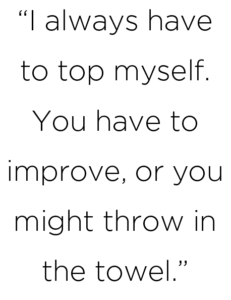
MC: “Twinkle Twinkle,” one of the first tracks that was released from the project, is built on an evil guitar figure.
Price: My husband came to me with that riff, and I knew immediately it would be something killer. It came out more Led Zeppelin than Neil Young. Matt Sweeney (guitar) is really laying into it.
MC: “Stone Me” has lyrics that speak to opinions. As a recording artist in the social media age, it must be tough sometimes to read comments from random, anonymous strangers.
Price: It is. Back in the day everybody had press, and you got bad press. People were apt to write bad reviews. Now you can get online and give your opinion to anybody. It does get a little tiring––being slandered, or talked down to. I just let it roll off of my back. You really can’t get into arguments with people online. There is just no point.
MC: Prior to the studio album, you released Perfectly Imperfect at the Ryman, recorded during a sold-out, three-night residency at the Nashville auditorium. This live album benefits the MusiCares COVID-19 Relief Fund. The band is slamming.
Price: Thank you. I had hoped to get that out a year ago. It took awhile to deal with the boring stuff like paperwork and rights. I’m glad I got it out. That was supposed to be the trajectory of everything anyway. It’s a rock & roll album. It feels like it closed an era. Now, I can move on and do other things.
MC: Emmylou Harris appears on the live album, as does Sturgill Simpson. In the past you recorded a duet with Willie Nelson. Do you have a wish list of artists with whom you like to sing with in the future?
Price: I’ve still got heroes left to meet, for sure. I would love to collaborate or sing with Stevie Nicks one day. I’m still bummed that Tom Petty left us so soon. He was somebody I admired so much. He had a lot of songs left in him, probably. There are more people: I love Father John Misty, Courtney Barnett and Sharon Van Etten. I love her collaboration with Norah Jones.
MC: Your first two solo records were on Third Man, Jack White’s label. You are now signed to Loma Vista Recordings, a label founded by A&R veteran Tom Whalley, that is now a part of the Concord Music Group. How is the interaction with the label?
Price: They are really wonderful people. They have been following my career since 2016. I love that they still give me artistic freedom and they don’t try to micro manage or control anything that I do. They let me lead. That is so valuable.
MC: Your new song “Prisoner of the Highway” has some prime autobiographical information. We understand that there are additional verses?
Price: I had too many, supposedly. I’m notorious for writing the six-minute song. I shortened that one up––I think it was for the best, because I could have kept going and going. When I get back to playing live shows, or if I play it for a live stream after the album is out, I might do some of the other verses and mix it up. It’s good to have extra.
MC: “I’d Die for You” has a live edge built on a modified Bo Diddley groove. It must be a killer song to play live.
Price: That track was one that I knew was going to end up on the album. We had 16 songs, and we ended up whittling it down to 10. That felt cohesive. I love what James Gadson did on that. It resonated through everything that’s going on, especially in Nashville, between the tornado and the pandemic and gentrification, and everything changing at such a rapid pace; everything that’s going on in the world between the evils of racism and the fact that a lot of Americans don’t have health care. That song becomes more lyrically important to me.
MC: We know the song “Hey Child” that you’ve included, from its original version you recorded with the band that you and Jeremy formed, Buffalo Clover, correct?
Price: We recorded it twice with Buffalo Clover, the “Stonesey” version feel that’s on that record, Test Your Love, and then another version with a friend of mine, a blues singer named Jim Skinner, that had a different tempo, and more of a soul side. When I went in to record this album, even though I had so many songs, Sturgill remembered that we used to close our shows with the song, and that he loved it. He thought we should re-record that, because none of my fans know it. So he twisted my arm and we laid it down. Pino Palladino (bass) and Matt Sweeney (guitar) declared it is a badass song. It brought back my love for it.
MC: You spent over a decade in Nashville before breaking out as a solo artist. What kept you going?
Price: I didn’t see any other prospects. I don’t have that many talents. I was waiting tables and hoping something would happen. The level of musicianship in Nashville is unmatched. It’s competitive too. I think there are a lot of misconceptions, that all of your favorite bands are friends. But it can be a little cutthroat.
MC: Live venues are suffering all across the country. It’s dangerous times for live music.
Price: I heard the Troubadour (in West Hollywood) might close. The Troubadour is such a cool place. The tornado that hit Nashville seriously damaged the Basement East, one of the really wonderful clubs. I don’t know what the situation is now, but I hope the smaller theaters and smaller clubs survive. These are places I will be playing in my whole life. I’d hate to see them go.
MC: You are a multi-instrumentalist, as a pianist and a very on point drummer, as we saw on Jimmy Kimmel Live. You would appear to have quite a collection of guitars at your disposal. Let’s talk about some of your favorite instruments. On your recent CBS Weekend appearance you played a Gibson J-45, correct?
Price: Yes, it’s a sunburst 1965 model. I bought it at Carter Vintage Guitars here in Nashville when I got my advance from Third Man. I also have a 1956 with a smaller body that is an heirloom of my great uncle’s. (Bobby Fischer, a songwriter for George Jones, Conway Twitty, Charley Pride and Reba McEntire.) For the album, I got a 12-string from Gibson. They’ve given me a number of guitars. I have a Hummingbird and a Jumbo. They’ve been good to me. I hit them up because I needed a 12-string on the record and I assumed they were giving it to me. I was getting ready to send my drummer back to Nashville, and I had too many guitars to carry on the plane, so he went a day earlier and took the 12-string for me. Then Gibson called and said they needed to pick up the guitar. I had to tell them it was already back in Nashville. So I bought that one, but it was worth every penny.
MC: On the electric front you played a single pickup 1964 Melody Maker on the CBS show.
Price: I bought that from a friend. It’s a great purchase, easier to play. I’ve also got some Telecasters that I love, but with this one I can dig a little heavier.
MC: So the relationship with Gibson is an endorsement situation?
Price: Yes, I am on their artist board. (The Gibson Alliance.)

MC: Your husband and frequent writing and musical partner, Jeremy Ivey, was recently diagnosed with Covid-19. How is he doing?
Price: He’s much better. It was a rough couple of months for him, but he’s back to his regular self and I’m grateful for it. Everything is turned upside down, and we don’t know what the future will hold. The only thing that’s comforting is that everybody is in this together.
MC: We were reading your local paper from Aledo, Illinois and saw that the town’s big event, The Rhubarb Festival, has been cancelled this year.
Price: I’m glad they’re shutting it down. We’ve got ass hats playing shows here in Tennessee, some big concerts, with no masks. I don’t know how they aren’t getting arrested. It’s going to set us back, and make it longer before we can do normal things. I don’t know if I’m going to be able to send my kids to school in the fall. We’ve got people left and right fucking up.
MC: How did you spend the recent 4th of July holiday?
Price: We didn’t party or set off fireworks in the name of our country. We marched with a wonderful group of teenagers called Teens for Equality. It was at the state capitol, and was really inspiring. The march was for Black Lives Matter.
MC: We’ve heard that in addition to everything else you’ve been doing, that you’ve written an autobiography.
Price: Yes! I I’m in the process of editing it right now. It’s something I did when I was pregnant because I needed to occupy myself. I’m excited for it to come out. It came out pretty easy. Someone is going to have to edit it down. I’d never written a book before, so I didn’t know about typesetting and all that. I was pleasantly surprised when I submitted it, and they said I’d completed 550 pages. And I wasn’t even done yet.
MC: Was it painful to revisit the tougher parts of your past?
Price: It’s painful, but it’s also kind of nice, especially now. When I look back, times were hard but they were definitely better than they are now. It’s nice to escape into the past and think about a different time.
MC: In addition to your musical ventures, you also have a line of cannabis through Willie Nelson’s company, Willie’s Reserve. How did that come about?
Price: That’s been a pipe dream come true for sure. Not a lot of people spend money on buying records, but they’ll spend five bucks on a coffee and $50 on an eighth of weed. Willie’s Reserve is good––they don’t mess around at all. And what is really wonderful and ties into my love of farming is that they keep their word like what they’ve done by supporting Farm Aid. All of the farmers they get are doing things organically, and it’s not corporate farms. It’s pretty inspiring to be a part of this.
MC: We hear some sounds in the background. Where are you right now?
Price: Checking out at the grocery store. I’ve been at home all day doing interviews, and I had to get out for a minute. I’m wearing my mask. If it sounds like I’m mumbling it’s because I have a mask on.
MC: So what’s in your cart?
Price: We bought too much stuff. My husband was laughing, because I bought a detox drink–– and a bottle of wine.
